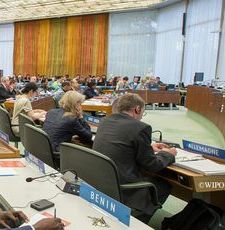ABOUT THE RESOURCE
In 2011-2013 EIFL provided financial support to 34 projects that implemented national and institutional open access (OA) advocacy campaigns to reach out to research communities and OA publishing initiatives.
Through small grants and support from their own institutions, the projects engaged in a wide variety of campaigns and activities, including: holding workshops, creating websites, building institutional OA repositories, creating e-learning courses, and implementing OA publishing platforms.
The case studies resulting from the projects reveal impressive first-time achievements and will help increase the availability of research literature in developing and transition countries.
Learn more about the key achievements for this national OA campaign in Zimbabwe below. You can access the full case study (strategies, tactics and tools, success stories and lessons learnt) by clicking on the download button.
About the project in Zimbabwe
Most of the universities and research institutions in Zimbabwe have embraced OA initiatives and have created OA Institutional Repositories (IR), however most have not formally implemented OA policies. Zimbabwe University Libraries Consortium (ZULC), a consortium of 12 University libraries, took the initiative to start discussions at the national level about OA policies by organizing a workshop for key stakeholders at universities, the Ministry of Higher and Tertiary Education and at research organizations.
This 2012 project builds on the success of the EIFL-funded University of Zimbabwe 2011 OA Advocacy Campaign “Say No! To Secret Knowledge: Support OA” (see the case study) which resulted in drafting an OA institutional mandate. The draft has been submitted to the Vice Chancellor’s Office for his comments. The next steps are that it will be presented to the Academic Committee and then to the Senate for approval.
Key Achievements
- At the workshop, 55 executives from 21 institutions expressed their support for OA initiatives. Pro-vice Chancellors and Academic Affairs and Research Directors who attended gained a greater understanding of OA issues, expressed their support and commitment and created a multi-institutional platform for OA policy formulation.
- Various institutions took advantage of the workshop to identify academics who will be OA champions for future OA advocacy campaigns.
- The Ministry of Higher and Tertiary Education and the Zimbabwe Council of Higher Education pledged to support OA (a milestone achievement for the nation and ZULC).
- Formulation of a National OA Policy was commissioned.
- The (researchdatabase.ac.zw) National Repository established by the Research Council of Zimbabwe (RCZ) was chosen as a good starting point for OA dissemination of research information at a national level. A proposal to have RCZ partner with Universities was also put on the table.
SHARE / PRINT









